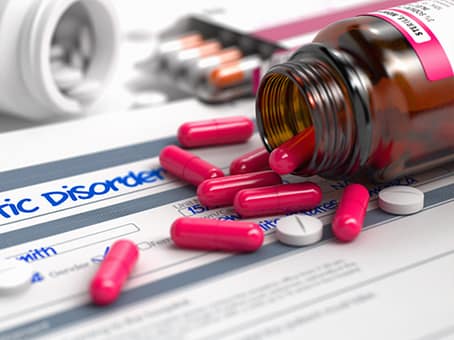
Genetic diseases. How will surrogacy help give birth to a healthy baby?

Hereditary diseases are passed on from generation to generation, some of them may be so serious that they are contraindicated for a woman’s pregnancy. But even a dangerous hereditary disease is no reason to live life without children. Thanks to modern assisted reproductive technologies: egg donation and surrogate motherhood, the problems of genetic diseases can be circumvented and make the birth of your baby possible.
- In case of which genetic diseases can a surrogate mother be used?
- How does the surrogate mother's genetics affect the genetics of the child?
- How do we choose a healthy embryo (PGD)?
In case of which genetic diseases can a surrogate mother be used?
Our Customer Service Representatives are eager to help you with whatever you need.
How does the surrogate mother's genetics affect the genetics of the child?
Many couples who want to use the service of surrogate motherhood are afraid that the genetics of the surrogate mother will affect the health of their child. But this widespread fear is absolutely not justified.
The surrogate mother bears a child, provides him/her with the necessary environment for growth and nutrients, but does not affect his/her genes. The genotype of the child is formed during fertilization during IVF. To ensure that the child’s genotype is healthy and does not contain genes with dangerous mutations, preimplantation diagnosis is performed.
How do we choose a healthy embryo (PGD)?
- Surrogate motherhood - how not to be deceived
- Advantages of guaranteed surrogacy programs over programs with guaranteed compensation
- Surrogacy in Mexico: What You Need to Know
- Disadvantages of Egg Donation - Only Truth about the Procedure
- Unique Cases of Giving Birth to Children
- How the History of Surrogacy Changed Over the Years
- Why I Chose Surrogate Motherhood with Feskov
- Connection between the child and the surrogate mother
- Age limit for surrogacy: international standards
- The First Meeting: 5 Helpful Tips for Surrogates & Intended Parents
- What Are The Benefits of Gender Selection?
- Pregnancy After Miscarriage: Getting Pregnant
- Surrogacy in Ukraine: Legal Aspects
- Women's Age And Fertility
- Alcohol And Fertility: Drinking While Trying To Conceive
- Embryo evaluation: understanding embryo quality assessment
- Historical Changes to Surrogate Laws in Israel
- TOP 5 surrogate clinics in Ukraine
- International Surrogacy Program Ukraine-Canada
- Why is surrogacy so expensive — what do you pay for
Join my mailing list to receive the latest news and updates
